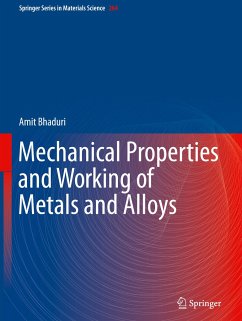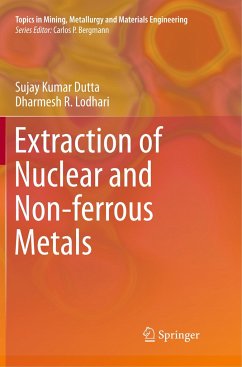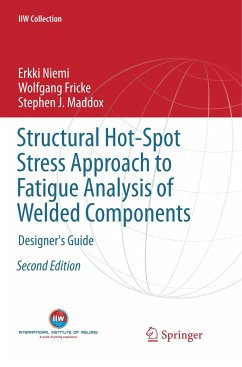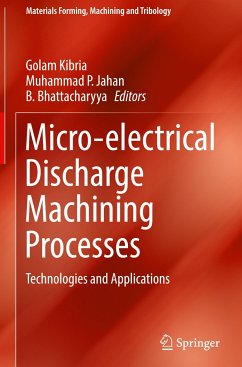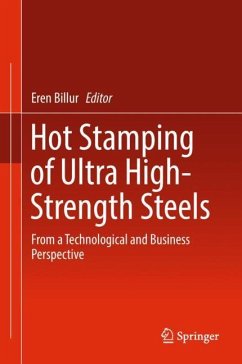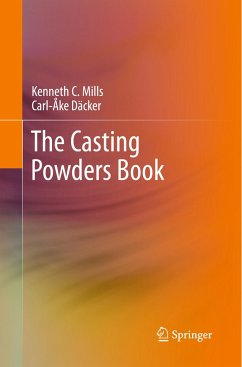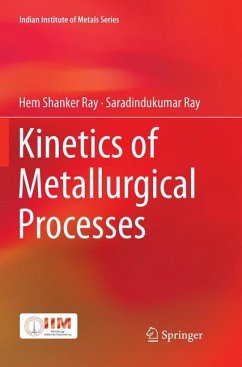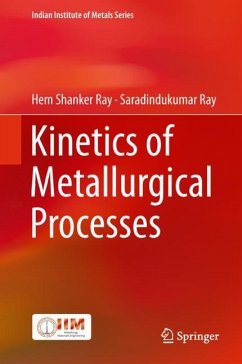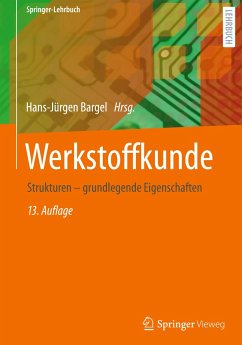
Mechanical Properties and Working of Metals and Alloys
Versandkostenfrei!
Versandfertig in 6-10 Tagen
69,99 €
inkl. MwSt.
Weitere Ausgaben:

PAYBACK Punkte
35 °P sammeln!
This book is intended to serve as core text or handy reference on two key areas of metallic materials: (i) mechanical behavior and properties evaluated by mechanical testing; and (ii) different types of metal working or forming operations to produce useful shapes. The book consists of 16 chapters which are divided into two parts. The first part contains nine chapters which describe tension (including elastic stress - strain relation, relevant theory of plasticity, and strengthening methods), compression, hardness, bending, torsion - pure shear, impact loading, creep and stress rupture, fatigue...
This book is intended to serve as core text or handy reference on two key areas of metallic materials: (i) mechanical behavior and properties evaluated by mechanical testing; and (ii) different types of metal working or forming operations to produce useful shapes. The book consists of 16 chapters which are divided into two parts. The first part contains nine chapters which describe tension (including elastic stress - strain relation, relevant theory of plasticity, and strengthening methods), compression, hardness, bending, torsion - pure shear, impact loading, creep and stress rupture, fatigue, and fracture. The second part is composed of seven chapters and covers fundamentals of mechanical working, forging, rolling, extrusion, drawing of flat strip, round bar, and tube, deep drawing, and high-energy rate forming. The book comprises an exhaustive description of mechanical properties evaluated by testing of metals and metal working in sufficient depth and with reasonably wide coverage.The book is written in an easy-to-understand manner and includes many solved problems. More than 150 numerical problems and many multiple choice questions as exercise along with their answers have also been provided. The mathematical analyses are well elaborated without skipping any intermediate steps. Slab method of analysis or free-body equilibrium approach is used for the analytical treatment of mechanical working processes. For hot working processes, different frictional conditions (sliding, sticking and mixed sticking-sliding) have been considered to estimate the deformation loads. In addition to the slab method of analysis, this book also contains slip-line field theory, its application to the static system, and the steady state motion, Further, this book includes upper-bound theorem, and upper-bound solutions for indentation, compression, extrusion and strip drawing. The book can be used to teach graduate and undergraduate courses offered to students of mechanical, aerospace, production, manufacturing and metallurgical engineering disciplines. The book can also be used for metallurgists and practicing engineers in industry and development courses in the metallurgy and metallic manufacturing industries.



